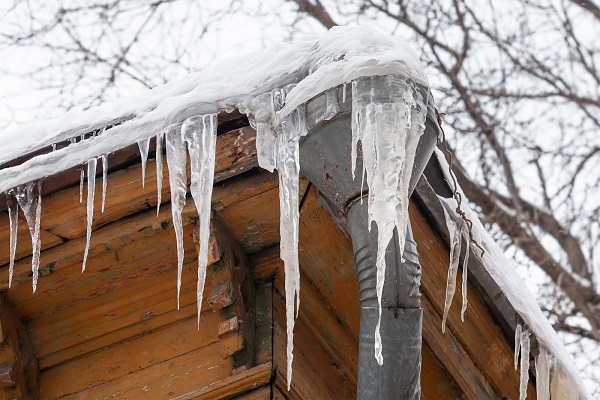 Overnight temperatures can plummet unexpectedly and without warning. When this happens, water pipes may end up frozen even before preventive measures can be taken. Frozen pipes that rupture can cause thousands of dollars in loss each year due to water damage and its associated consequences. It’s best to resolve this concern early on before major repairs become necessary.
Overnight temperatures can plummet unexpectedly and without warning. When this happens, water pipes may end up frozen even before preventive measures can be taken. Frozen pipes that rupture can cause thousands of dollars in loss each year due to water damage and its associated consequences. It’s best to resolve this concern early on before major repairs become necessary.
Telltale signs of frozen water pipes
If the water pressure drops noticeably and the water supply slows to a trickle or there’s no water flowing out of your faucet at all, chances are a portion of your water supply line has been frozen. Once you have an idea of which particular water supply line might be frozen, identify and trace the water supply line connecting to that fixture. Trace the pipe backward from the fixture until you come to a span that may have been exposed to freezing temperatures such as in a crawl space, attic, or in the garage.
Frozen water pipe do’s and don’ts
Should you experience this situation, here are a few things to keep in mind:
Do:
- Keep your faucet open – even if at a slow trickle. This allows moving water to run through the pipe, which can help speed up the thawing process.
- Heat up the section of the pipe that is frozen. Use a hairdryer or wrap the area with hot towels just out of the dryer. Be extra careful when using any electric-powered device in a wet environment.
- Call a professional immediately if the frozen pipes are located inside an exterior wall. This is a serious situation that might require cutting a hole in the wall to expose those pipes to warmer air.
Don’t:
- Use an open flame device like a blowtorch, propane or kerosene heater, or a charcoal stove to thaw frozen pipes.
- Leave space heaters unattended if you are using one. If you have pets, block them off from meandering around this area.
- Wait for a pipe to completely thaw on its own if you suspect that the pipe has ruptured. If there’s a noticeable split in a pipe or a loose pipe joint, turn off the main water supply and call a plumber as soon as possible.
Preventing frozen water pipes
While we have no control over the weather, there are things we can do to prevent frozen water pipes and potential water damage:
- Drain water from pipes that are more likely to freeze such as swimming pools and sprinkler water supply lines.
- Disconnect, drain, and store water hoses when not in use. Close the indoor valves supplying these access points.
- Insulate areas surrounding doors, windows, vents, and light fixtures to keep warm air from escaping.
- Seal wall cracks. Pay extra attention to areas around utility service lines.
- Let warm air circulate around the pipes whenever possible.
- Maintain consistent thermostat levels 24/7; never let it fall below 55 degrees Fahrenheit should you be away for an extended period of time.
Should a frozen water pipe burst, it could lead to extensive – and expensive water damage. Serving Nashville (Davidson) and surrounding counties, Rytech Nashville offers water damage restoration services 24 hours a day, 365 days a year for all types of water-related damage caused not only by busted pipes but also by appliance failure, roof leaks, and sewage backups. Schedule an appointment to learn more.
Rytech Nashville has become a leader in the water damage restoration and mold remediation industry. From its humble beginnings in one location, the company has reached exponential growth and currently provides service to 49 major markets across 25 states. Call (615) 751-8445 for more information.